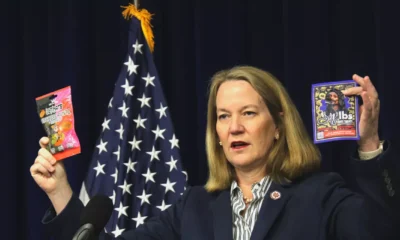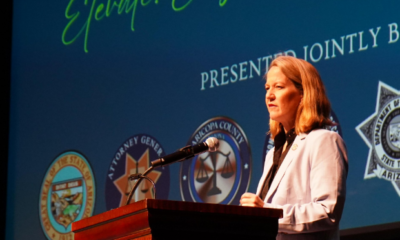Arizona Supreme Court
$250 Donations to AG Mayes Fall Short in Judge Disqualification Ruling

The Arizona Supreme Court has ruled that $500 in donations made by appellate judge Andrew Jacobs to attorney general candidate Kris Mayes do not warrant his removal from hearing a crucial case involving the 2020 fake electors. This ruling comes after Sen. Jake Hoffman, one of the individuals indicted in the case, claimed that Jacobs’ donations indicated bias.
The high court dismissed Hoffman’s appeal without providing further reasoning, thereby upholding a prior decision by appellate chief judge David Gass. Gass had concluded that the donations did not compromise Jacobs’ ability to impartially rule on the case. One donation even came after Mayes had made statements regarding the guilt of the electors, long before any indictments were issued.
This ruling is significant as the Court of Appeals, which includes Jacobs, will now decide whether Mayes’ actions were an infringement on the defendants’ First Amendment rights. Earlier this year, Maricopa County Superior Court Judge Sam Myers found sufficient grounds to question whether the indictments, which include charges ranging from fraud to conspiracy, should be dismissed. However, he deferred a final decision.
Mayes has since requested a review of Myers’ decision, prompting Hoffman’s motion to disqualify Jacobs from the proceedings. The next ruling could determine if the defendants will face trial this January or if the case could potentially be dismissed.
The indictments allege that Hoffman and 10 other Republicans engaged in efforts to mislead officials by submitting false documents to indicate that Trump had won Arizona, despite losing by over 10,000 votes to Joe Biden. Others implicated include members of Trump’s circle, with Trump himself being identified as an unindicted co-conspirator.
The defendants maintain their innocence, arguing they prepared the documents in anticipation of possible litigation that could support Trump’s claims. However, the prosecution asserts this was part of a broader scheme to undermine the electoral process.
Complicating matters is Arizona’s anti-SLAPP law, designed to protect individuals from lawsuits that suppress free speech. In 2022, this statute was expanded by the Republican-controlled Legislature to include criminal prosecutions, particularly in the context of the fake electors.
Hoffman’s attorney, Michael Columbo, argues there exists compelling evidence of Mayes’ “retaliatory motive” in pursuing the indictment, referencing her statements made during her campaign that labeled the electors’ actions as criminal.
Columbo highlighted Jacobs’ political contributions, suggesting they indicate a bias toward Mayes’ platform, particularly regarding criminal charges against the defendants. He noted that Jacobs made two donations on June 18 and August 11, 2022, both coming after Mayes publicly condemned the actions of the electors.
Despite these claims, Judge Gass previously stated there was not enough evidence to justify disqualifying Jacobs, emphasizing that the allegations did not overcome the presumption of impartiality that judges generally enjoy. Moreover, Gass clarified that even if ethical rules did apply, donating to political candidates is not inherently against judicial standards.


















